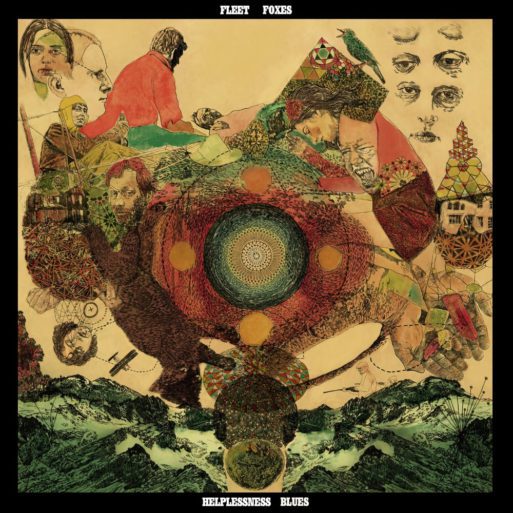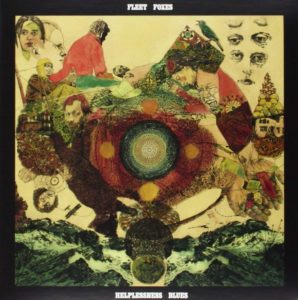 “The Plains/Bitter Dancer” by Fleet Foxes is a beautifully composed song, consisting of an instrumental intro and a lyrical second half. It’s about mortality and how death is a natural part of life.
“The Plains/Bitter Dancer” by Fleet Foxes is a beautifully composed song, consisting of an instrumental intro and a lyrical second half. It’s about mortality and how death is a natural part of life.

Fleet Foxes
Credit: theknowmagazine.com
The first stanza touches on the aspect of death as an inherent occurrence throughout the natural world:
Just as the sand made everything round
Just as the tar seeps up from the ground
Bitter dancer, ever turning
So was the day that you came to town
Here and throughout “The Plains/Bitter Dancer,” death is personified as an intruder of sorts. Perhaps the narrator has a terminal illness, or maybe their death was sudden, but at some point the “bitter dancer” made its appearance. Though faced with the prospect of dying, the narrator acknowledges that death is part of the natural order. The bitter dancer is a constant presence in our constantly-rotating world.
The following stanza of “The Plains/Bitter Dancer” really makes use of the idea of death as an unwelcome visitor. The song continues:
You took a room and you settled in
Washed off the chalk from your weathered skin
Daylight sleeper
Bloody reaper
You took a room and you settled in
Death has stormed into the narrator’s abode, and planted itself as a fixture in the home. The bloody reaper has taken a permanent room, and there’s nothing the narrator can do.
The next stanza touches on the notion of regret at the sight of death:
I should have known one day you would come
All of us walk so blind in the sun
Midnight feeder, beggar, pleader
I should have known one day you would come

Cover of the album “Helplessness Blues”
This stanza fits well into the terminal illness narrative. The narrator, like most people on their deathbeds, acknowledges that they should have anticipated the bitter dancer’s arrival. While we are alive and healthy, most of us are not actively thinking about death.
Here the narrator takes on the role of a beggar, pleading the bitter dancer to give them more time. Yes, they knew death was coming, but they don’t want to go just yet.
Death Gets A Voice
The bitter dancer gets a chance, albeit quite short, to make its voice heard. One of the final lyrics of “The Plains/Bitter Dancer” is the following couplet:
Tell me again my only son
Tell me again what have you done?
These are the only lines of the song in which death has the chance to say something. They prove quite profound, asking its victim, “What have you done with your life?”
This must be the most common question a person asks themselves when they’re faced with the prospect of dying. Depending on the answer, it may make the process simpler or agonizing.
“The Plains/Bitter Dancer” begs us to think about our lives. Though we’re all aware that the bitter dancer of death spares nobody, it’s easy to get lost in the daily grind of life; sometimes we don’t use our time as wisely as we should.
I think, if anything, this song allows us an opportunity to contemplate our mortality. No one should spend all of their time thinking about death and dying, but it’s necessary every now and then. Sometimes reflecting on our lives and being aware of the fleeting nature of it all can generate a healthier, more robust quality of life — something we all deserve.
You can find lyrics to “The Plains/Bitter Dancer,” here. Below is a live recording of the song.

 “The Plains/Bitter Dancer” by Fleet Foxes
“The Plains/Bitter Dancer” by Fleet Foxes


 First the Wealth Gap, Now the U.S. Has a Growing Health Gap
First the Wealth Gap, Now the U.S. Has a Growing Health Gap
 How to Comfort A Dying Loved One
How to Comfort A Dying Loved One
 Our Annual Seven Holiday Gifts for Someone Who Is Grieving, 2024 Edition
Our Annual Seven Holiday Gifts for Someone Who Is Grieving, 2024 Edition














